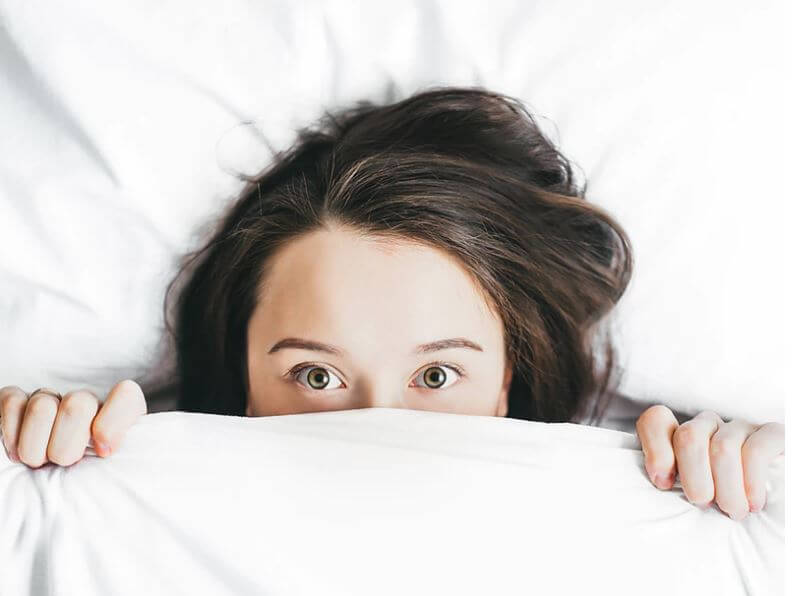Does your child/teen suffer from less-than-optimal shut eye? Is he or she glued to the late night glow of their tablet? Have you seen bags under their eyes?
Sleep is crucial for teens
Most tweens and teens do not get enough sleep. According to the National Sleep Foundation, it is recommended teenagers get 8-10 hours of sleep per night to fully function the next day. Due to the reality of school schedules and sleeping hours, this is not usually attainable. But even getting 30-60 more minutes of sleep proves to be a substantial improvement in functionality. While some teens may be able to get away with less, your teen’s brain needs rest to nourish healthy brain development. Furthermore, sleep is a critical contributor to balancing their mood and stress levels.
Helping your teens get better sleep doesn’t have to be a power struggle or even a punishment. Chances are, your teen probably knows they are not getting enough z’s. Maybe sharing a super cool blog with them can help get the conversation going.
1. Get into a Groove
No teen wants to hear about a ‘bedtime’ but having a preparation period before bed can help your teen wind down and transition into rest-mode. This routine would come to signal to your teen’s brain that it is almost sleep time and it should prepare for rest. An example of a routine might be: brushing teeth, showering, changing into pajamas, having a cup of caffeine-free tea etc. You can sneak this into a regular routine by putting on the tea kettle around bedtime and offering a cup of chamomile tea or sleepy time tea. (You may also do this for your own sleep). Keep the groove going all seven days of the week. If weekend bedtime routines are vastly different than weekdays, teens can end up out of sync for the upcoming school week.
2. Get rid of the Glow
This one is Tough with a capital T (even for adults). Teens should put their devices to “night time mode” about 1-2 hours before going to bed. This is so their brains are not as stimulated for activity so close to winding down. Then 30 minutes to an hour before sleep they should be without devices. The backlight from electronic devices can keep your teen awake because it sends signals to their brain to stay alert and activated. Some teens will strategically place devices across the room to resist temptations while others let their parents take devices during the night.
3. Boundaries around their bed
Your teen’s bed should only be used for sleep. As a rule, activities such as homework and device usage should be done out of the bed. By only utilizing the bed for sleep and rest, your teen programs their brain and body to sleep upon getting into the bed. The goal is for your teen to associate all interactions involving the bed with sleep.
4. Sleeping to the senses
The environment in which your teen sleeps should be an oasis of rest and relaxation. Think of a nice vacation or a luxurious spa-like feeling. The goal is for your teen to start feeling relaxed as soon as his or her head touches the pillow at night. To achieve this, we can pay attention to the senses of hearing, touching, and smelling.
Sounds
Does your teen wake to any and every noise during the night? If so, a sound machine may help drown out outside noise and chatter. You can purchase a sound machine as a stand-alone unit or use a phone app (try Rain Rain or Calm). In addition, your teen may enjoy other relaxing sounds such as beach waves, rain, fire crackling, or low rumbling thunder. If your teen is using one of these apps, I suggest setting it up to run through the entire night and placing it across the room or out-of-reach to resist the temptation to use the phone or device.
Scents
Smells and fragrances can further soothe your teen through the senses. Scents like lavender, chamomile, bergamot, jasmine, sandalwood, and rose are all sleep-inducing smells. You can buy these scents as essential oils. Your teen can use them by putting them in a diffuser, using a spray bottle, or rubbing them onto their wrists and breathing them into their nose. A few drops can go a long way since the fragrance is pure and concentrated. Some stores will even advertise these as “pillow mists” or have names like “goodnight” or “rest”.
Soothe
Finally, let’s discuss the bed and the sense of touch. How soothing is the bed? Is the room temperature comfortable? How do the blankets, pillows, and sheets feel? Your teen will spend the whole night here, so it is imperative that it is comforting and optimal for rest. Some teens like to use body pillows or cushions to supplement their sleep positions. Some like the use of a fan or a space heater depending on if they get warm or chilly. Talk to your teen and ask about their sleeping preferences to get a better sense of what is most beneficial.
5. If you cannot sleep, get up
This as a rule of thumb: if it takes longer than normal to fall asleep (e.g longer than 30 minutes), get out of bed! They should go do something relaxing before getting back into bed. This is not to say stare at the clock and pay attention to how many more hours of sleeping time they still have left. This will keep them up! Instead, use this as a loose rule of knowing themselves and knowing how long they are laying down before falling asleep. If your teen is tossing and turning and wondering how long it has been since they went to bed, this is a sign they may want to get out of bed. Now, what they do when they get up is just as important as getting out of bed itself. It should be relaxing. This can be deep breathing, journaling, listening to soothing music, drawing or reading.
P.S.: Resist the urge to pick up that phone! Some people find it helpful to create a little nook in their room designated for quiet relaxation . Place a journal, sketchbook, bean bag chair, and books together so it is easier to access during the evening. Your teen may also want to practice deep breathing and meditation exercises.
Try the “9-0” mindfulness exercise below:
- Breathe in deeply and breathe out slowly, saying in your mind the number 9. On the next breath out; say 8; then say 7; and so on until you breathe out saying 0
- Then start over, but this time start with 8 (instead of 9) as you breathe out, followed by 7, and so on until your reach 0.
- Next start with 6 as you breathe out, and so on until 0
- Then start with 5, then with 4, and so on until you have gone all the way down starting with 1 (If you lose your place, you can always start over with the last number you remember). Continue and repeat until you fall asleep.
As a reminder, consistency is key with all of these tips- don’t give up!
Happy dreaming!
Is your teen experiencing issues related to anxiety or sleep?
Learn more about our Teen Therapy Services





